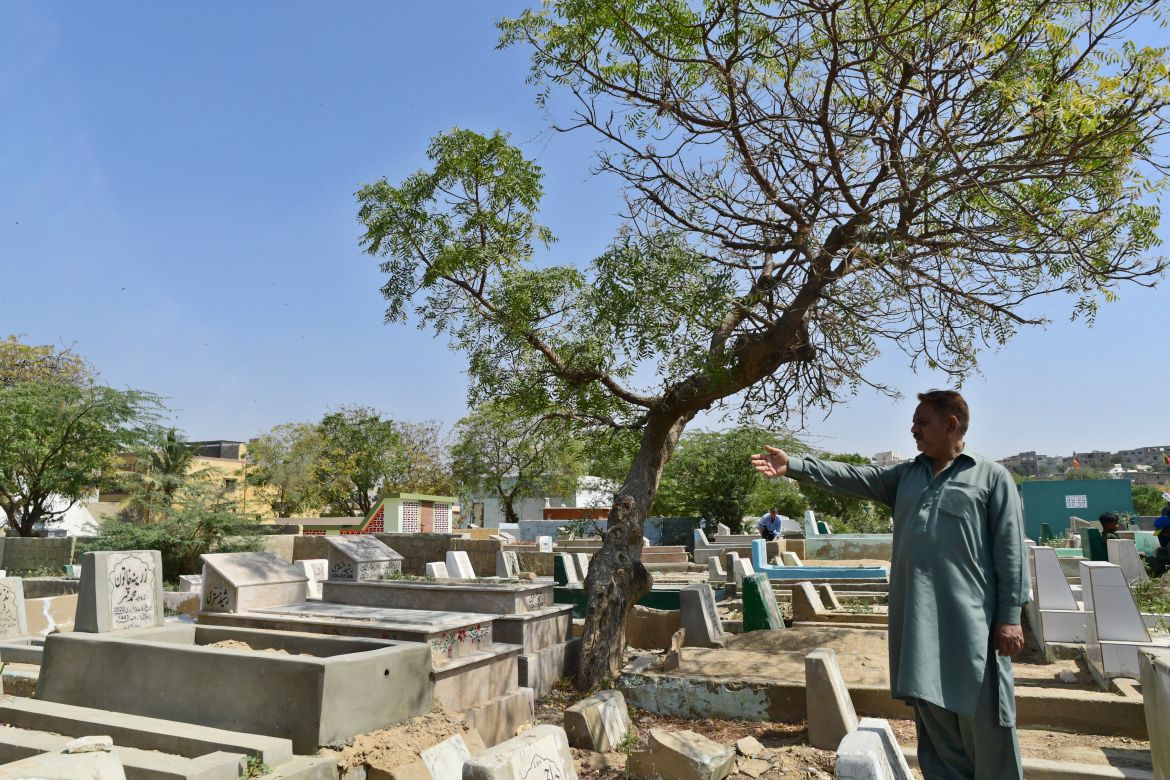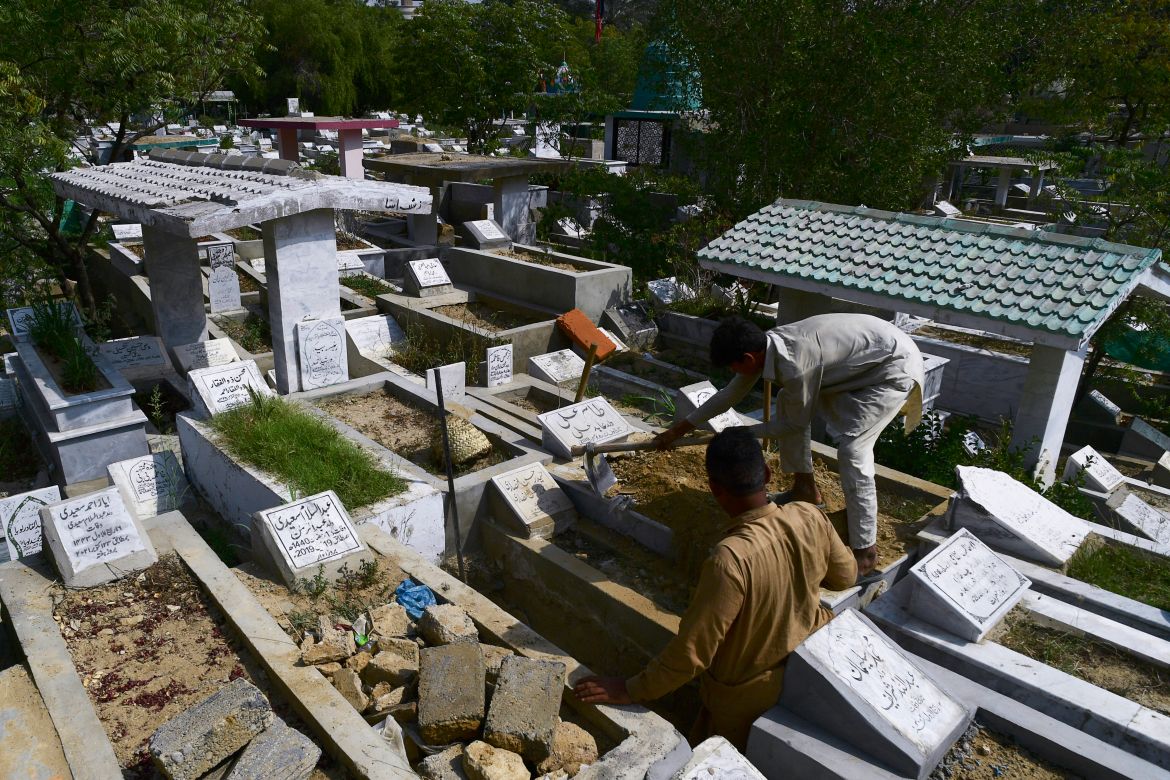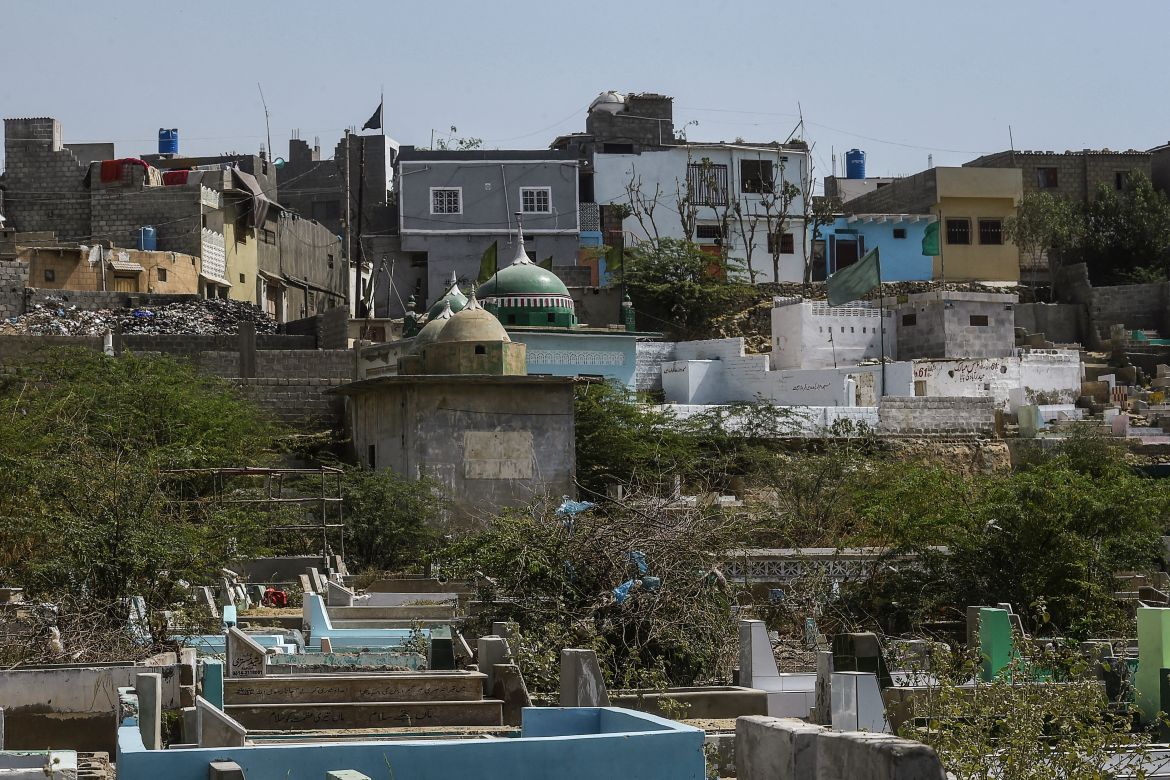In Pictures
Photos: Even the dead running out of space in Pakistan’s Karachi
For the right price to the right person, a plot can be ‘found’ to bury a loved one in the country’s biggest city.

In the teeming metropolis of Karachi, Pakistan’s biggest city, graveyards are filling up and the dead are running out of space to rest.
But for the right price to the right person, a plot can be “found” for the body of a loved one by shady crews who demolish old graves to make room for the new in the coastal megacity of 20 million people.
The Pakistan Employees Cooperative Housing Society (PECHS) cemetery has been officially full for five years.
The government burial fee in this district is 7,900 Pakistani rupees ($44) but two locals reported paying 55,000 and 175,000 ($305 and $969) to lay a loved one to rest in the PECHS graveyard last year.
“There’s no space in the whole of Karachi – none of the graveyards has space for [new] burials,” said gravedigger Khalil Ahmed.
Ahmed said the fees are split between him and his colleagues who are part of what politicians and the media call the “gravedigger mafia” – referring to the freelance gravediggers who are profiting from Pakistan’s changing population dynamic by burying people where old graves used to stand.
Pakistan is the world’s fifth most-populous nation with 220 million citizens and more than four million added every year.
As the population grows, so does the migration of people from the countryside to the cities, looking for work to escape rural poverty.
Muhammad Aslam witnessed the “gravedigger mafia” flourish as Karachi’s population boomed.
The 72-year-old says the PECHS graveyard was a “deserted place” when he moved in near it in 1953 but “space shrank fast” as he saw burial prices rise for 14 family members interred over the years.
In 1967, Aslam’s family paid 50 rupees to bury his grandfather but a relative buried at the hands of the mafia in 2020 cost 33,000 rupees.
“The basic issue is that infrastructure is insufficient,” said Ali Hassan Sajid, a spokesman for the Karachi Metropolitan Corporation (KMC).
The KMC manages 39 of approximately 250 graveyards citywide, including PECHS. Six are closed while the rest are “almost full”.
“In some parts of the city the infrastructure is the same that existed when Pakistan was founded,” Sajid admitted.
He acknowledges the existence of “gravedigger mafias” conducting burials at closed sites and claims efforts to evict them are under way.
The gangs are also reported to be flourishing in the cities of Rawalpindi, Peshawar and Lahore.
Whether the “gravedigger mafia” is at fault depends on who you ask.
Sajid said families eager to bury relatives alongside previous generations in full yards offer high prices that “lure the gravedigger so he falls prey to his greed”.
Ahmed the gravedigger says he provides an essential service in a city unable to administer itself, scratching out a meagre living in return.
And while some locals view the practice as part of the faulty fabric of life in a teeming city, for others it is a source of dismay.
Muhammad Abdullah Saif’s father was buried in the PECHS graveyard decades ago.
Today, the tomb is surrounded by empty sacks of cement and the shattered cusps of tombstones – the mafias generally pick untended graves for demolition.
“We have to come and visit regularly or the grave will be knocked down,” said the 32-year-old.
Muzammil Asif, meanwhile, must clamber over a carpet of ankle-twisting hazards to reach the grave of his teenage sister, buried here last summer.
“Graves are desecrated when one walks over them,” the 21-year-old complains.
And in the nearby Korangi graveyard, Muhammad Munir has experienced a wrenching loss.
Every year he comes to offer prayers in the cemetery where his father was buried – an amphitheatre of tumbledown tombstones fringed by ragged flags.
But the grave is long gone, demolished more than 20 years ago and replaced by another. That replacement is gone too, swapped out for a new one.
Some years when Munir visits, he finds a new crop of tombstones bearing unfamiliar names, smeared with cement. Now he’s unsure of exactly where his father lies.
“It’s painful,” he said. “The grave was the last sign of him.”







